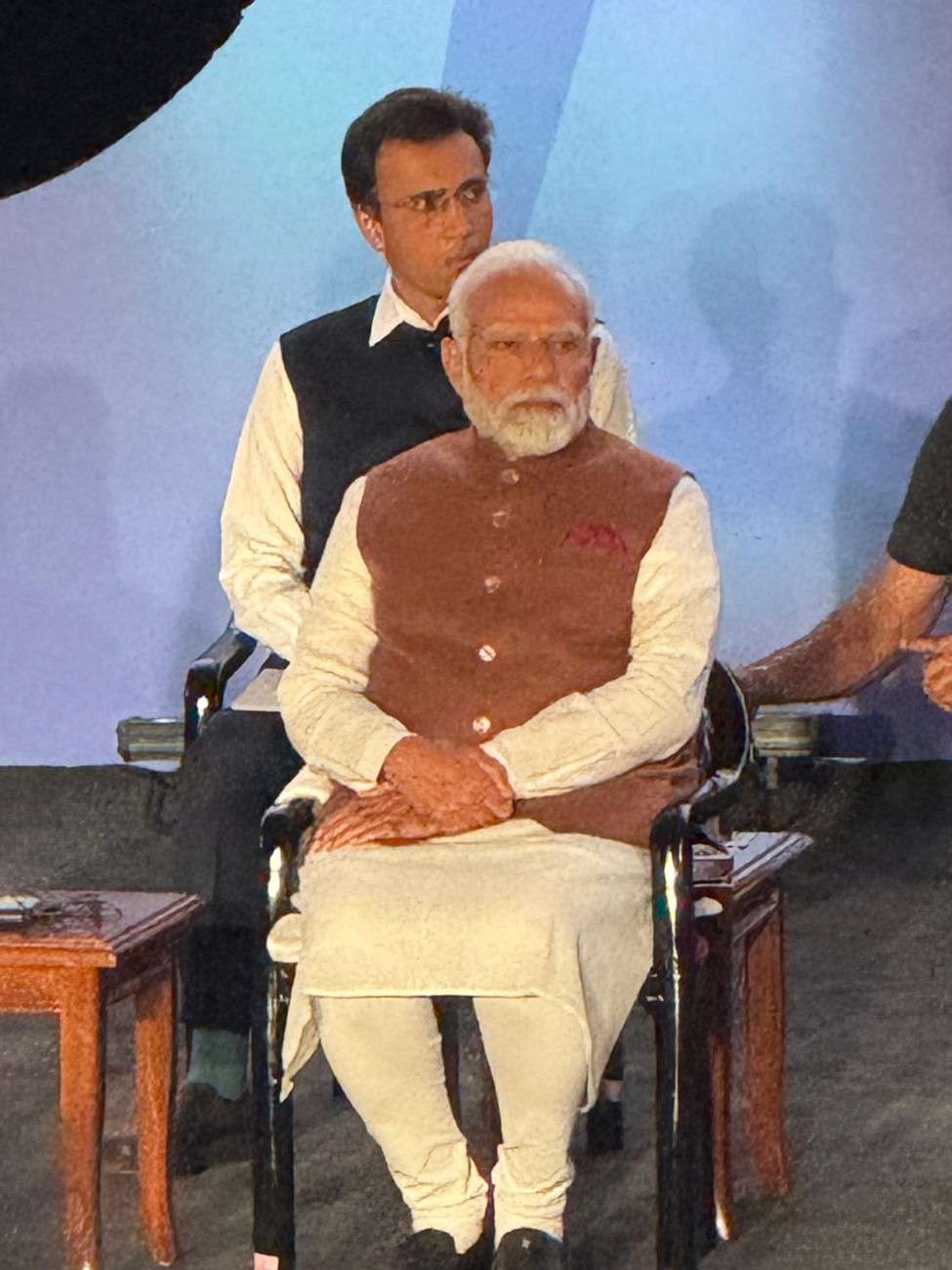
India today is the world’s third-largest domestic aviation market : PM Modi
NEW DELHI : Prime Minister Shri Narendra Modi said while addressing the International Air Transport Association’s (IATA) 81st Annual General Meeting (AGM) and the plenary session of World Air Transport Summit (WATS) at Bharat Mandapam here on Monday 2nd June that, India is growing in the Aviation market rapidly and now the world’s third-largest.
PM highlighted India’s remarkable transformation in civil aviation over the past years. He added, “India has become the third-largest domestic aviation market in the world”. Emphasizing the success of the UDAN scheme, calling it a golden chapter in Indian civil aviation history, Shri Modi stated that under this initiative, over 15 million passengers have benefitted from affordable air travel, enabling many citizens to fly for the first time. The Prime Minister remarked that India’s airlines continue to achieve double-digit growth, with 240 million passengers flying annually—surpassing the total population of most countries worldwide. He projected that by 2030, this number is expected to reach 500 million passengers. Shri Modi noted that 3.5 million metric tons of cargo are transported by air annually in India and this volume is set to increase to 10 million metric tons by the end of this decade.
Emphasizing that these figures are not just statistics but a reflection of India’s immense potential, the Prime Minister highlighted that India is actively working on a futuristic roadmap to maximize this potential. He underscored India’s investment in world-class airport infrastructure, noting that in 2014, the country had 74 operational airports, which has now expanded to 162. Shri Modi further remarked that Indian carriers have placed orders for over 2,000 new aircraft, signaling rapid growth in the sector. Stressing that this is just the beginning, as India’s aviation industry stands at a crucial takeoff point, set to achieve unprecedented heights, he highlighted that this transformation will not only transcend geographical boundaries but will also drive sustainability, green mobility, and equitable access globally.
“India’s airports now have an annual handling capacity of 500 million passengers and is among the few nations setting new standards in user experience through technology”, exclaimed the Prime Minister, stating that equal priority is being given to safety, efficiency, and sustainability. He further underscored India’s transition towards sustainable aviation fuels, investment in green technologies, and efforts to reduce carbon footprint. Shri Modi remarked that India is committed to ensuring both progress and environmental security, reinforcing a balanced approach to development.
Urging international guests to familiarize themselves with the Digi Yatra app, highlighting it as a pioneering example of digital aviation, the Prime Minister emphasized that Digi Yatra provides a complete, seamless travel solution using facial verification technology, enabling passengers to navigate airport entry to boarding gates without requiring paper documents or ID display. Shri Modi said that India’s innovations and experience in serving a large population can benefit many countries. He added, “Digi Yatra stands as a secure and smart solution, serving as a model of inspiration for the Global South”.
Underlining that consistent reforms have been a key driver of India’s rapidly expanding aviation sector, the Prime Minister stressed on India’s commitment to becoming a global manufacturing hub, with strategic initiatives supporting this vision. Mentioning that Mission Manufacturing was announced in this year’s budget, reinforcing India’s focus on industrial growth, Shri Modi further highlighted the Protection of Interest in Aircraft Objects Bill, passed in Parliament this year, granting legal authority to the Cape Town Convention in India. The Prime Minister remarked that this legislation opens new opportunities for global aircraft leasing companies in India. He also pointed to the incentives offered at Gift City, stating that these measures have made India an attractive destination for aircraft leasing.
“The new Indian Aircraft Act aligns aviation laws with global best practices, ensuring a streamlined regulatory framework, ease of compliance, and a simplified tax structure which presents a significant investment opportunity for major international aviation companies”, said Shri Modi. He highlighted that growth in the aviation sector translates to new flights, new jobs, and new possibilities, noting that the industry is creating expanding opportunities for pilots, crew members, engineers, and ground staff. The Prime Minister also pointed to the emergence of Maintenance, Repair, and Overhaul (MRO) as a sunrise sector, highlighting that India is accelerating efforts to become a global hub for aircraft maintenance. He noted that in 2014, India had 96 MRO facilities, which has now increased to 154 while 100% FDI under the automatic route, GST reduction, and tax rationalization measures have given fresh momentum to India’s MRO sector. Shri Modi further outlined India’s goal to establish a $4 billion MRO hub by 2030, reinforcing the nation’s aviation growth strategy.

